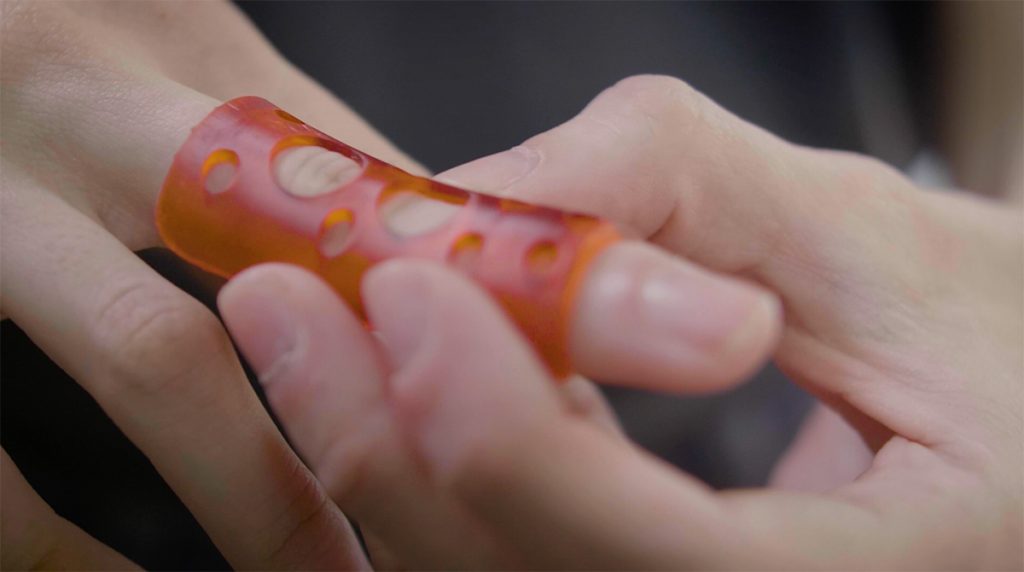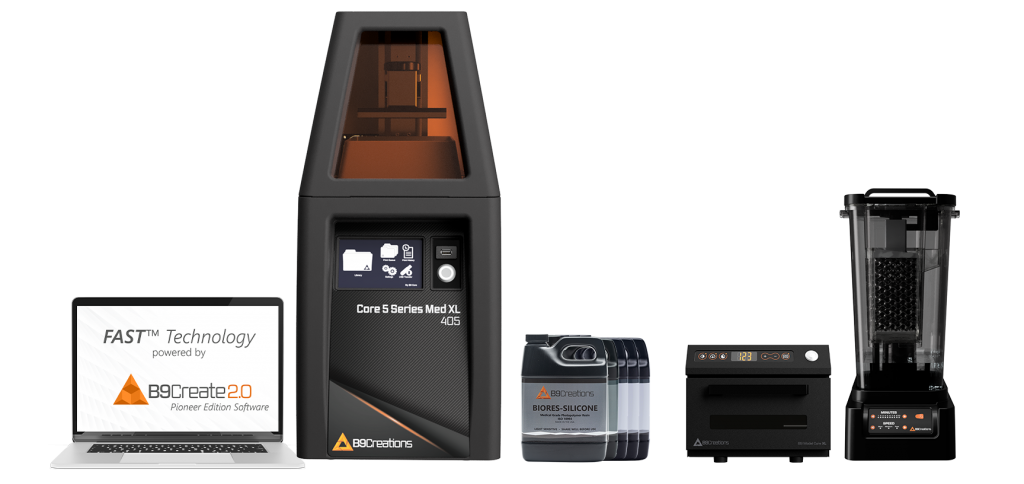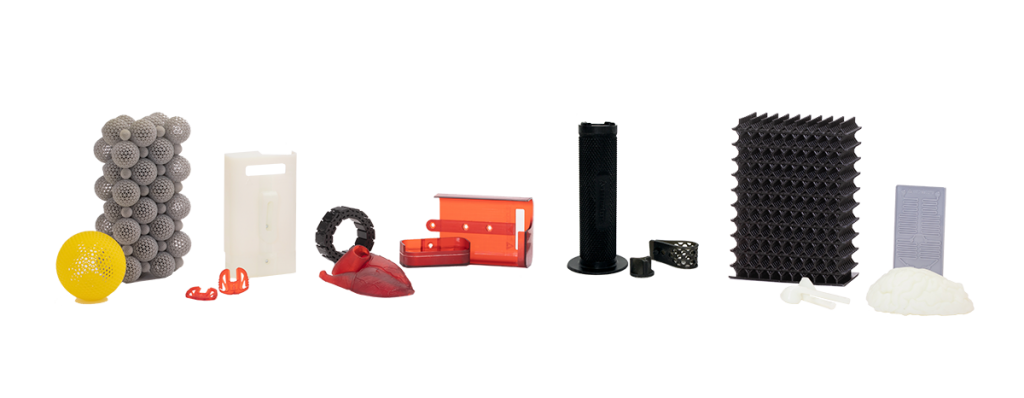3D printer manufacturer B9Creations has partnered with South Dakota-based social services organization Black Hills Works to 3D print custom assistive devices for over 600 disabled individuals.
For almost seven decades, Black Hills Works has provided disabled adults with everything from homes and employment to recreation and social outlets. Now partnering with B9Creations, the organization’s Assistive Technology team is better equipped to meet the diverse needs of the 600+ people it serves.
The partnership will see B9Creations’ resin-based LCD 3D printing technology used to produce a wide variety of assistive devices, all of which will be designed to grant greater independence. This includes eating utensils, wearable medical devices, wheelchair grips, waterproof call lights, specialist workplace tools, and more.
“The 3D printer will help us save money by making something rather than buying it,” explains Tammy Murner, Director of Innovation & Technology at Black Hills Works. “We will have the resources to individualize solutions for the people we support!”

The need for custom assistive devices
While many of us take them for granted, assistive devices can completely change the lives of those in need. The sector is a broad one, covering everything from mobility aids such as wheelchairs and crutches to highly-complex prosthetics and orthotics. Many of these devices also have integrated electronics, such as hearing aids that work to amplify sounds for the wearer.
Unfortunately, assistive devices are often very costly, as well as being time-consuming to produce. Many of them are also serially manufactured, meaning they may fail to meet the personalized needs of the individuals using them. This is where B9Creations’ medical 3D printing technology can lend a helping hand.
Shon Anderson, CEO of B9Creations, adds, “We are excited to partner with Black Hills Works to remove those barriers with accessible, fast, customizable parts in an easy-to-use, medical-grade 3D printer. It is very rewarding to see technology being used to transform people’s lives and give them greater independence.”

Medical 3D printing with B9Creations
The company’s medical 3D printer range comprises the B9 Core Med 500 and the larger B9 Core 5 Series Med XL. Both of these systems claim to be fast, precise, and easy to use, with an out-the-box setup time of just 15 minutes. Compatible with B9Creations’ full range of biocompatible 3D printing resins, the printers are used by a whole host of major industry brands, including Medtronic, Johnson & Johnson, 3M, and Procter & Gamble.
As well as the medical 3D printing technology, Black Hills Works’ Assistive Technology team will employ B9Creations’ design and training services in a bid to break its own track record of innovation. Last year, the team was able to develop over 700 creative assistive devices, a 54% increase from the year before. With the help of B9Creations, the organization is now looking to raise the bar even higher.

The use of additive manufacturing for assistive devices is a prime example of the direct human benefits offered by the technology. Late last year, pharmaceutical 3D printing specialist FabRx developed a set of novel 3D printed tablets with Braille and Moon patterns on the surface to aid patients with visual impairments. The printlets’ readability was verified by a blind member of staff at the Royal National Institute of the Blind (RNIB).
Elsewhere, in Wales, researchers have previously 3D printed highly-customizable head supports for wheelchair users. The engineers pitted their design against a common commercially available head support, finding the 3D printed variant to be both stronger and lighter.
Subscribe to the 3D Printing Industry newsletter for the latest news in additive manufacturing. You can also stay connected by following us on Twitter and liking us on Facebook.
Looking for a career in additive manufacturing? Visit 3D Printing Jobs for a selection of roles in the industry.
Featured image shows a medical device sample print. Photo via B9Creations.



